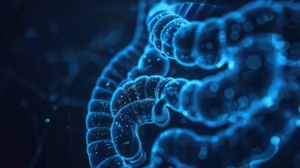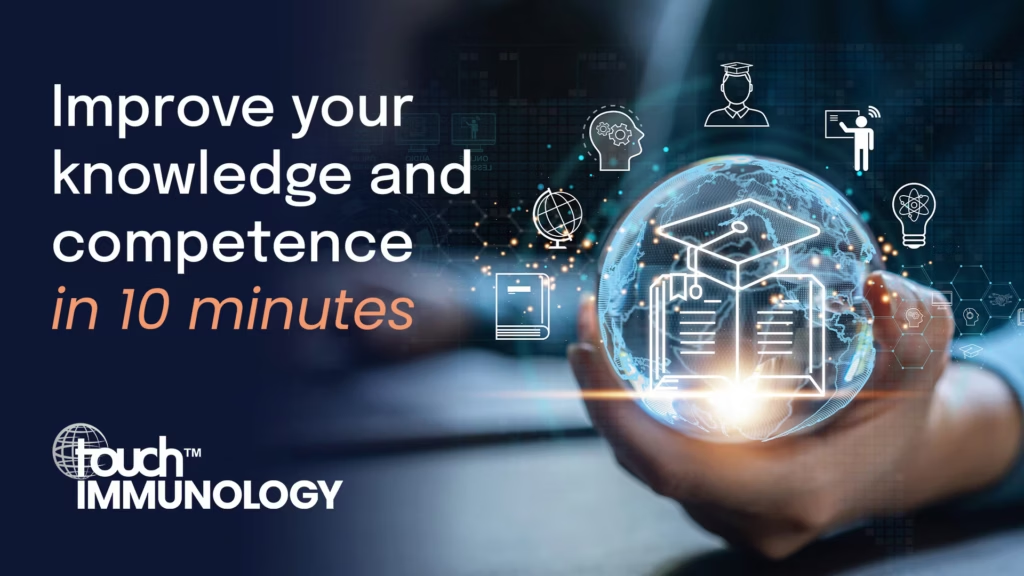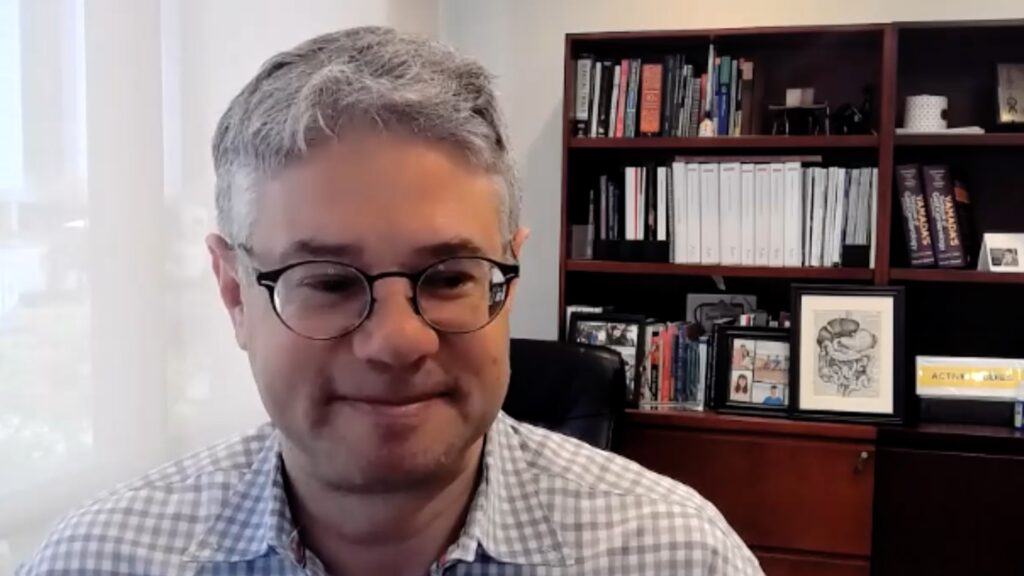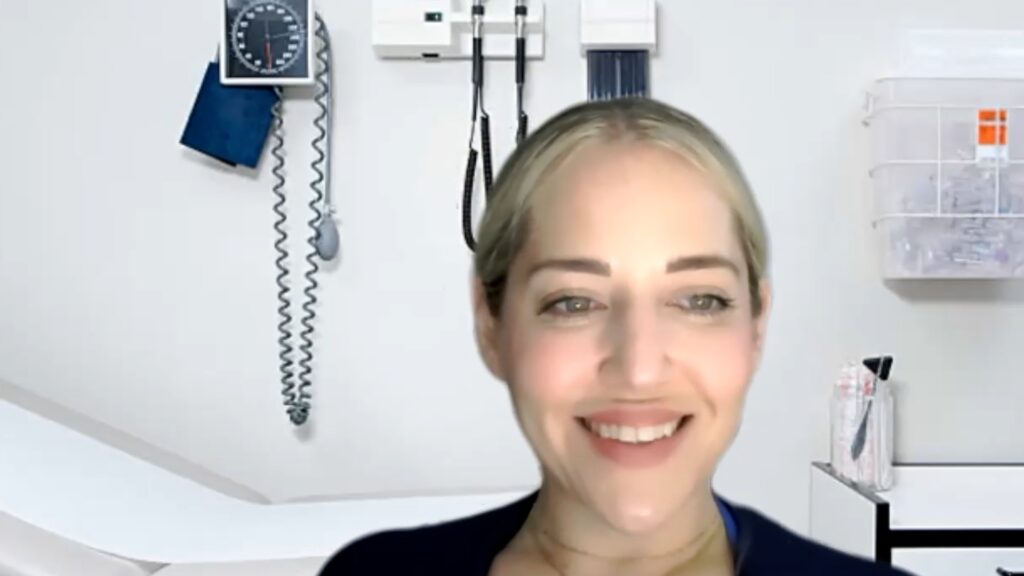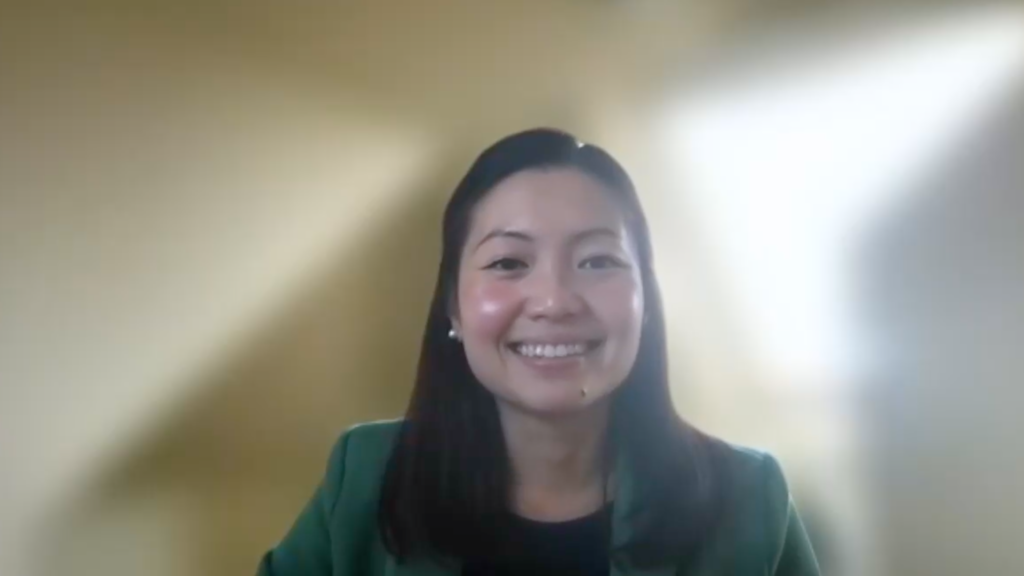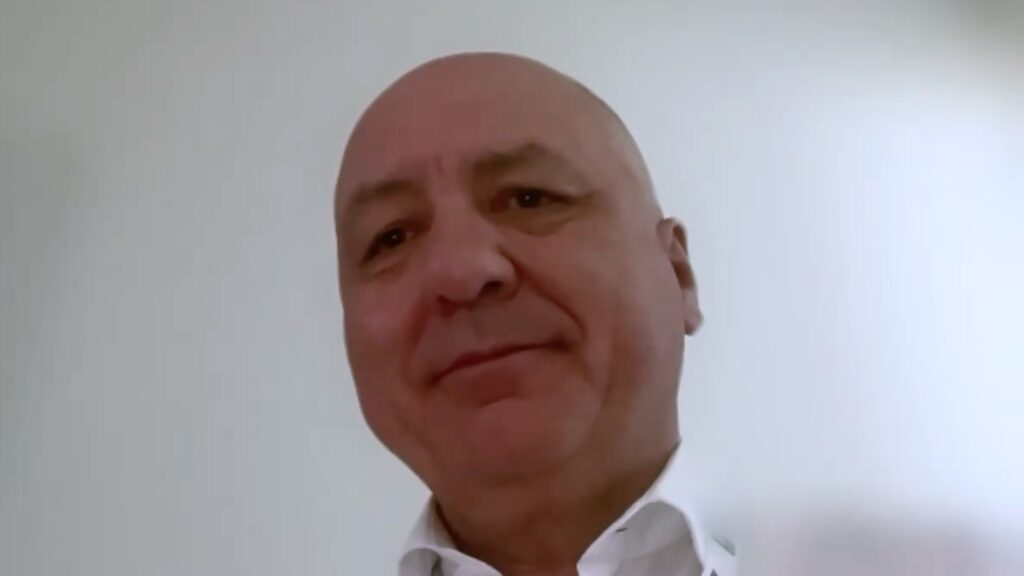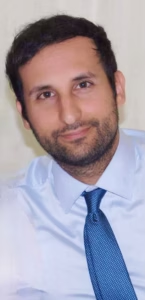 Dr Andreas Hadjinicolaou is a clinician-scientist at the University of Cambridge and a rising leader in gastroenterology, with a focus on early cancer detection. His work bridges clinical practice and translational research, aiming to develop accessible, non-invasive tools to diagnose gastrointestinal (GI) cancers at a curable stage. Trained at Cambridge, Oxford, and Stanford, Dr Hadjinicolaou has received multiple national awards, including the BSG Young Gastroenterologist of the Year, the Royal College of Physicians (RCP)/NIHR Young Researcher Award for outstanding contribution to clinical research, the NII Ralph Steinman Memorial Prize for Immunology Research, and the UK Barrett’s Oesophagus Registry Prize. His research combines biomarker discovery, immunology, molecular diagnostics, imaging-enhanced and artificial intelligence (AI)-enhanced detection tools, advanced endoscopy therapeutics and real-world clinical application.
Dr Andreas Hadjinicolaou is a clinician-scientist at the University of Cambridge and a rising leader in gastroenterology, with a focus on early cancer detection. His work bridges clinical practice and translational research, aiming to develop accessible, non-invasive tools to diagnose gastrointestinal (GI) cancers at a curable stage. Trained at Cambridge, Oxford, and Stanford, Dr Hadjinicolaou has received multiple national awards, including the BSG Young Gastroenterologist of the Year, the Royal College of Physicians (RCP)/NIHR Young Researcher Award for outstanding contribution to clinical research, the NII Ralph Steinman Memorial Prize for Immunology Research, and the UK Barrett’s Oesophagus Registry Prize. His research combines biomarker discovery, immunology, molecular diagnostics, imaging-enhanced and artificial intelligence (AI)-enhanced detection tools, advanced endoscopy therapeutics and real-world clinical application.
In this Q&A, Dr Hadjinicolaou shares how he balances the demands of clinical work with research, highlighting the importance of integration between the two. He also discusses the future of gastroenterology, from AI and advanced endoscopy to personalized medicine, and outlines his vision for more accessible, equitable, and proactive approaches to cancer diagnosis and care.
Q. How do you balance clinical work with research in early cancer detection?
Balancing clinical responsibilities with research in early cancer detection is certainly challenging. It requires careful prioritization, effective time management, and a strong commitment to translational impact. My approach is based on integration rather than separation. I ensure that my clinical experiences inform my research questions, and conversely, that my research addresses real-world clinical challenges that could lead to practical implications.
For instance, in my clinical work, I often encounter diagnostic limitations or delays, as well as heterogeneous practice amongst clinicians in terms of pathology diagnosis. These directly motivate me to work on the development of accurate and accessible early detection tools. I collaborate closely with multidisciplinary teams to translate patient needs into viable research hypotheses. Conversely, I strive to bring research findings back into the clinic, whether through early-stage pilot implementations or discussions within clinical teams.
Managing time effectively to maintain quality in both research and clinical settings is often the greatest challenge of a clinician-scientist. Thus, I dedicate structured time blocks during the week for research, grant writing, and data analysis, while also protecting time for direct patient care including diagnostic and therapeutic endoscopic procedures. Having a well-defined schedule, along with a strong support team and shared leadership in both clinical and academic settings, enables me to remain productive without compromising quality in either domain.
Ultimately, my passion for improving early cancer detection drives both aspects of my work. The synergy between clinical insight and scientific exploration is, in my view, essential to delivering real advances in cancer outcomes.
Q. What does winning the BSG Young Gastroenterologist of the Year award mean for your career?
Winning the BSG Young Gastroenterologist of the Year award is a deeply meaningful milestone in my career. It represents recognition not only of individual effort, but also of the collaborative work I’ve been fortunate to be a part of – particularly in the area of early cancer detection and translational research in GI cancers and cancer immunology.
This award has reinforced my commitment to pushing the boundaries of innovation in gastroenterology, especially in applying emerging technologies to improve diagnostic accuracy and patient outcomes. It also provides a valuable platform to advocate for the integration of research and clinical practice, and to mentor the next generation of clinician-scientists.
From a career development perspective, it opens doors to new collaborations, enhances the visibility of my research, and gives me the opportunity to contribute more meaningfully to the direction of the specialty at a national and international level. But perhaps most importantly, it motivates me to continue striving for excellence; always with patients at the centre of everything I do.
Q. What advice do you have for aspiring gastroenterologists?
I’ve been fortunate to have several outstanding mentors throughout my career, each of whom has shaped my development in unique ways. I have had the opportunity to learn under the direction of outstanding individuals who are international experts in their fields at some of the best institutions in the world, including the University of Cambridge (UK), University of Oxford (UK) and Stanford University (USA).
Clinically, I’ve had mentors who demonstrated not only technical excellence and impeccable clinical reasoning but also the importance of empathy and clear communication with patients. Academically, I’ve been guided by world-class researchers who encouraged me to think critically, ask bold questions, and pursue translational research with real-world impact – particularly in the field of immunology and early cancer detection.
Their consistent advice was to stay curious, remain grounded and focussed on patient needs, and to never underestimate the value of collaboration. They also emphasized resilience; reminding me that setbacks are part of research and clinical life, but persistence and a healthy reaction to challenging situations is what often yields breakthroughs and builds character.
To aspiring gastroenterologists, my advice would be: embrace the full scope of the specialty. Gastroenterology is uniquely positioned at the intersection of procedural skill, chronic disease management, and emerging science. Take time to find your niche, but also build a strong foundation across the breadth of the field.
Equally important is finding good mentors early – people who not only guide your clinical and research journey but also support your growth as a leader and advocate for your patients. Lastly, I would urge younger colleagues to maintain a sense of purpose. Whether you’re in clinic, endoscopy, or the lab, always ask yourself how your work can make a lasting difference. This purpose is what will continuously drive you to achieve more and have a fulfilling and impactful career.
Q. What innovations do you see transforming gastroenterology in the next decade?
The next decade promises to be transformative for gastroenterology, with several innovations poised to redefine how we detect, diagnose, and manage disease. One of the most impactful areas will probably be non-invasive early cancer detection, particularly through multi-omics approaches, liquid biopsies, and biomarker-driven screening tools. These advances will allow us to shift from reactive to proactive care, identifying currently devastating malignancies, such as colorectal, pancreatic, gastric or oesophageal cancer at a truly curable stage.
AI is also set to revolutionize endoscopy. We’re already seeing the benefits of AI-assisted polyp detection, but this is just the beginning. In the coming years, I expect AI will support lesion characterization, procedural guidance, and even risk stratification in real time – enhancing diagnostic accuracy and standardizing care across varied settings.
Furthermore, innovations in therapeutic endoscopy are rapidly turning gastroenterology into an increasingly interventional performance with a significant armamentarium to enable less invasive, organ-preserving treatments. Techniques like endoscopic submucosal dissection (ESD), full-thickness resection and third space endoscopy are constantly expanding what can be achieved without surgery, particularly in the setting of early GI cancers. Metabolic endoscopy, particularly for obesity and type 2 diabetes, offers promising minimally invasive interventions with systemic benefits. Combined with robotics and AI, these advances will likely reshape treatment pathways and improve outcomes across a wide range of GI and metabolic diseases.
Another exciting frontier is personalized medicine through microbiome profiling, pharmacogenomics and precision therapeutics. As our understanding of host-microbiome interactions and molecular predictors of drug response deepens, particularly in inflammatory bowel disease and functional GI disorders, I expect we will move towards more targeted, individualized treatments that will be more effective and have fewer side effects.
Finally, digital health integration, from remote patient monitoring to wearable technologies, will allow us to track disease activity, medication adherence, and quality of life in ways that are far more responsive and patient-centred.
Together, these innovations will fundamentally change our role; not just as diagnosticians, but as data interpreters, collaborators in multidisciplinary teams, and advocates for a more predictive, preventive approach to gastroenterology.
Q. What impact do you hope your current research will have on early cancer diagnosis and care?
My ultimate goal is to close the gap between early disease biology and real-world clinical detection, in order to help identify cancers at a stage when they are most treatable or even curable. I hope my current research will contribute to a future where cancer is routinely diagnosed before symptoms appear, using non-invasive, accurate, and accessible tools.
Specifically, I aim to improve the sensitivity and specificity of early detection strategies, whether through biomarker discovery, advanced imaging, or AI-enhanced diagnostics. However, beyond the innovation and the technology itself, I would like my work to have a systemic, population-level impact: reducing diagnostic delays, minimising unnecessary procedures and enabling risk-stratification using community-based tests or personalized screening pathways based on individual risk.
Another key aspect of my research is equity; ensuring that advances in early cancer detection benefit diverse populations, not just those in well-resourced settings. That means developing solutions that are not only scientifically robust, but also scalable and implementable in routine care.
Finally, early detection should be accompanied by an action to intercept the cancer progression sequence. Whether that is regular surveillance or early treatment, I hope to explore ways to scientifically improve the quality of what is offered to patients to improve clinical outcomes.
All in all, if successful, I hope this work will shift the narrative around cancer from late intervention to true prevention and early detection, improving survival rates and quality of life for thousands of patients who would otherwise be diagnosed too late.
More content in immuno-oncology.
Cite: Andreas Hadjinicolaou. Shaping the next era of gastroenterology and early cancer detection: a Q&A with future leader, Andreas Hadjinicolaou. touchIMMUNOLOGY. 1 August 2025.
Editor: Victoria Smith, Senior Content Editor.
Disclosures: This short article was prepared by touchIMMUNOLOGY in collaboration with Andreas Hadjinicolaou. touchIMMUNOLOGY utilize AI as an editorial tool (ChatGPT (GPT-4o) [Large language model]. https://chat.openai.com/chat.) The content was developed and edited by human editors. No fees or funding were associated with its publication.
Andreas Hadjinicolaou discloses consulting for Odin Vision and Takeda Ltd; receiving grant/research support from the Academy of Medical Sciences, BMA Foundation for Medical Research, Cancer Research UK-Medimmune Alliance, The A.G. Leventis Foundation, The Pathological Society of Great Britain & Ireland, The Wellcome Trust, and the University of Cambridge; receiving honoraria from Odin Vision and Takeda Ltd, and other financial or material support from Abbvie, Dr Falk, and Medtronic.
Related content
- Shaping Immuno-oncology and Precision Medicine through Bioinformatics: Celebrating a pioneer in progress, Hassan Abushukair
- What’s New in the 2025 ACG Crohn’s Disease Guidelines: Personalized Care and Advanced Therapies
- Advancing Clinical Care and Research in Paediatric Gastroenterology: An Interview with Future Leader, Dr Salvatore Oliva
SIGN UP to TouchIMMUNOLOGY!
Join our global community today for access to thousands of peer-reviewed articles, expert insights, and learn-on-the-go education across 150+ specialties, plus concise email updates and newsletters so you never miss out.

